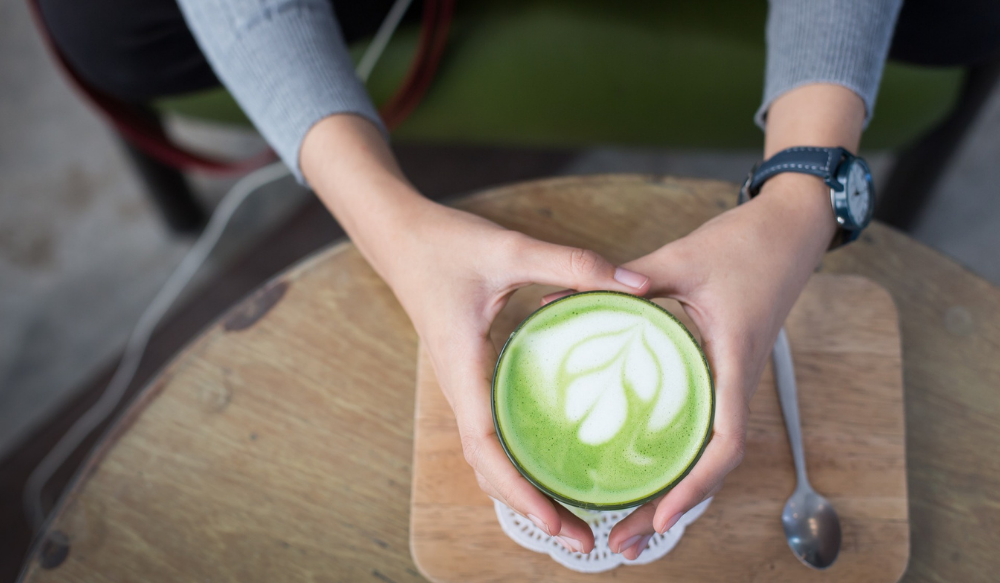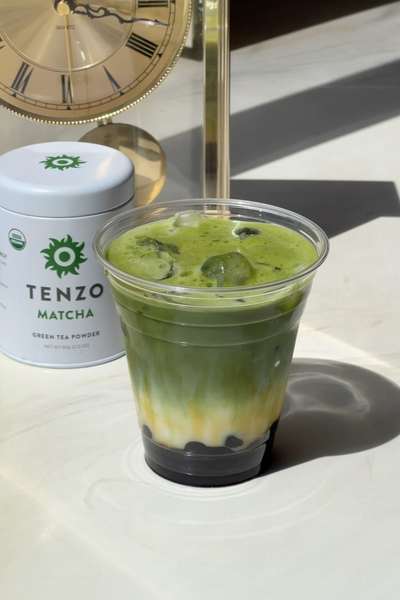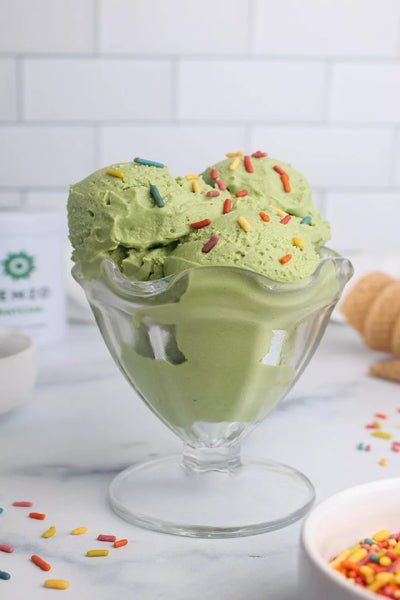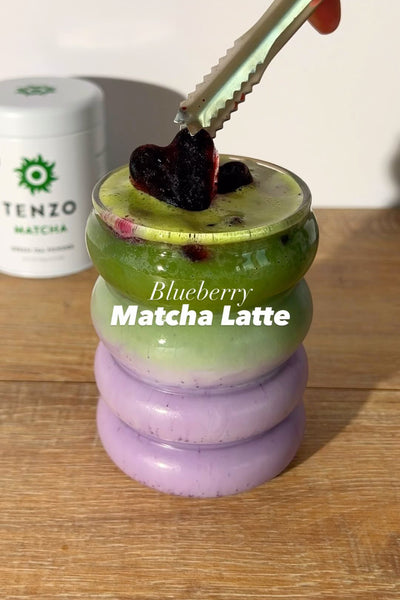How Does Matcha Give Me Energy?

Walk into any grocery store, gas station, or local market, and chances are that you’ll find plenty of drinks aimed at boosting your energy levels. Coffee and energy drinks are popular go-to’s for beginning the workday or getting through the afternoon slump. However, these beverages may cause more harm than good. Studies have shown that this type of caffeine consumption has negative effects on your overall health and can actually make you feel even more fatigued.
In a perfect world, we would all wake up every morning feeling refreshed and ready to take on the day. But, we don’t live in a perfect world and sometimes we need a little extra help with our energy levels. If all the popular caffeine options cause problems like anxiety, jitters, headaches, and irritability, what are you supposed to drink? The answer comes in the form of a vibrant green powder - matcha.

How Much Caffeine Does Matcha Have?
Matcha is a more pure type of green tea, and green tea has caffeine. So why are we recommending that you drink matcha even though we just discussed the negative effects of caffeine? Because not all caffeine is created equal. The average cup of coffee has about 96 mg of caffeine. Matcha, on the other hand, has on average about 60mg of caffeine per serving. In addition to having less caffeine, matcha has a secret weapon: the amino acid Theanine.
How Does Matcha Give You Energy?
Also known as L-theanine and L-γ-glutamylethylamide, Theanine is the key to matcha’s energy-boosting success. When partnered with caffeine, as it is in matcha, theanine helps to slow the entrance of caffeine molecules into the bloodstream. This means that instead of getting a quick jolt of energy followed by a crash, matcha drinkers experience a day-long energy boost. But, that’s not the only benefit of this powerful amino acid.
Theanine is also the reason that you don’t feel anxious, get jitters, suffer from nausea, or have headaches when you drink matcha.
“L-theanine significantly increases activity in the alpha frequency band which indicates that it relaxes the mind without inducing drowsiness”
When l-theanine interacts with your brain, it increases the production of alpha waves in the brain. Alpha waves are an indication that your brain and body are relaxed. Typically we see them when falling asleep, meditating, or relaxing. But, they aren’t associated with a drop in energy levels. In fact, studies show that you feel just as awake as you do when they aren’t dominating your brain chemistry. The increased production of alpha waves as a direct result of theanine is why you don’t feel anxious or jittery when you drink matcha.
Does Drinking Matcha Have Any Negative Side Effects?
Nope. Unlike coffee and energy drinks, there are absolutely zero negative side effects when you drink matcha. Matcha is completely natural and offers powerful antioxidant benefits that have experts all over heralding it as a superfood. The only effects matcha has on your body are positive ones. Matcha has been shown to help reduce inflammation, improve concentration, help with weight loss… it’s even been shown to aid in boosting your immune system. If you want to read more about the benefits of drinking matcha, check them out here. And when you’re ready to start your day off the right way, grab some Tenzo matcha.











